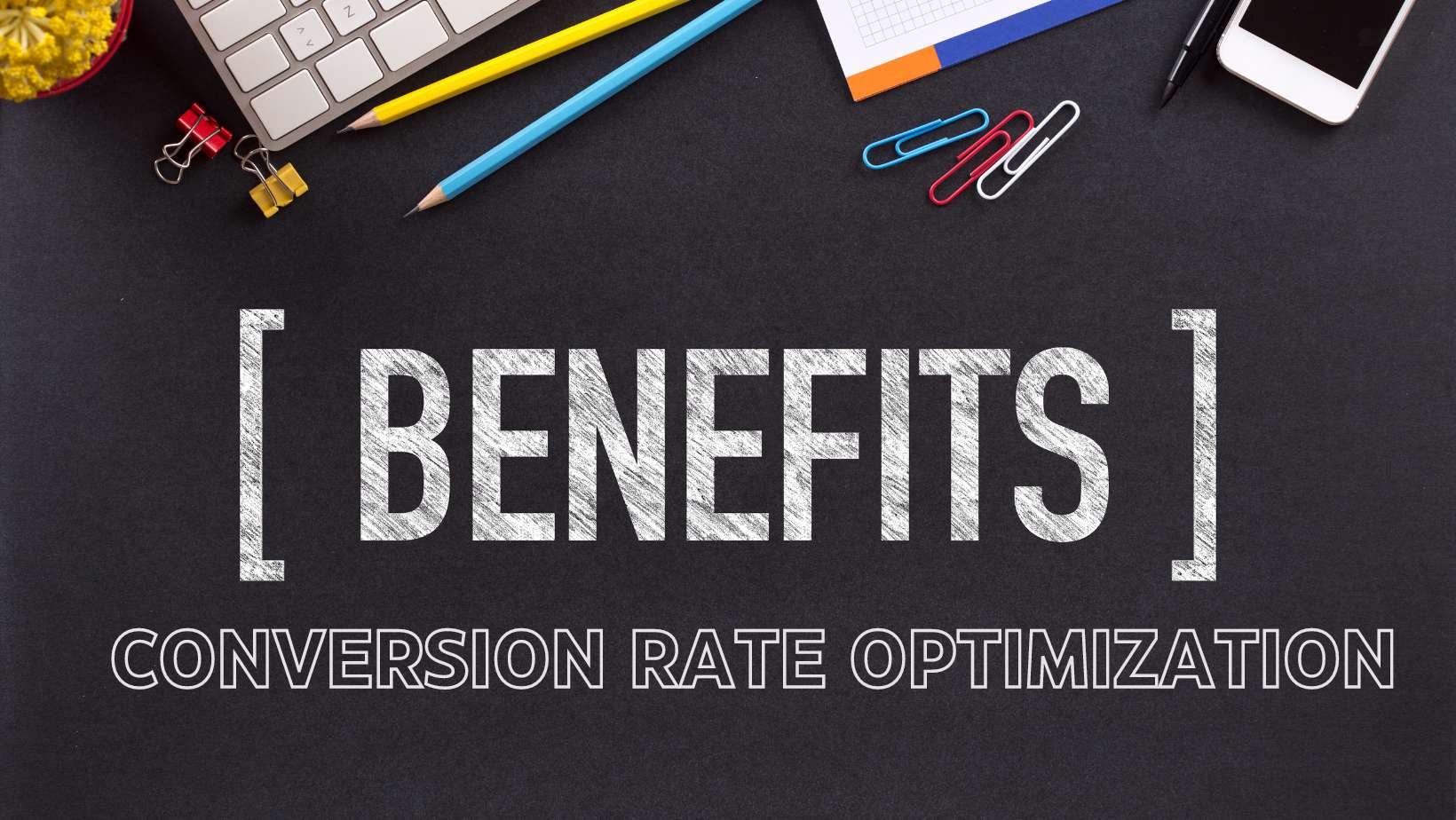
You may have figured out many ways to drive traffic to your website. But are you able to convert your visitors into your customers? If not, it is time you started focusing on Conversion Rate Optimization benefits!
So, what exactly is Conversion Rate Optimization (CRO)?
Conversion Rate Optimization or CRO is a method that you adopt to make sure more and more users take the desired action on your website. This action could be purchasing your product, subscribing to your newsletter, filling out a form, signing up for a service, or even clicking on a particular link.
- Conversion Rate is obtained by dividing the number of conversions by the total number of people who visit your website and then multiplying the result by 100, to get a percentage.
- For instance, if you had 450 visitors to your website last month and achieved 18 sales, your conversion rate would be (18/450)*100 = 4 percent.
The average conversion rate would fall between 2 and 5 percent. However, this might differ from one industry to another.
CRO is not about pressurizing your users towards taking the desired action. It is more about making it easier for them to achieve their goals on your website. Gather as much data as possible on why you are unable to achieve the desired conversion rate. Use that data to come up with a strategy to improve customer experience and maximize value.
CRO is best done by optimizing your website for your visitors. Here are a few Conversion Rate Optimization benefits that will help you understand the significance of CRO:
Page Contents
1. More Clarity on Customer Requirements
Effective CRO practices can help you get a complete picture of how your visitors interact on your website. You will know what they come looking for, and what makes them abandon your website without taking the desired action. You will be able to understand the problems that your users face, at every phase of their journey. It is up to you how you use this data to enhance their experiences.
Make sure you adopt a customer-centric approach to understand the pain points of your users. Identify the goal that they want to achieve and find out why they are not able to achieve the same. Use this data to fix the relevant problems on your website and focus on making their journey smoother.
2. Minimized Customer Acquisition Costs
You may have invested a lot of resources to drive traffic to your website, but all that investment will do you little or no good if those visitors don’t convert into your customers. This is where Conversion Rate Optimization helps.
One of the main benefits is that It can help maximize the value of your investment by converting your visitors into your customers. All that you need to do here is use the required CRO tools and analytics to understand the behavioral patterns of your visitors and the problems that they face while navigating through your website.
Your focus has to be on making it clear, what action you want your users to take on your website. The data that you gather through CRO will help you in increasing the UX or user experience of your website. Your visitors will then automatically convert into your customers, without you having to spend anything extra on acquiring them.
3. More Value with Less Traffic
Conversion rate optimization can maximize your conversions without increasing traffic to your website. You only have to optimize your website for your existing users by designing a CRO-focused User Experience. This will make your visitors return to your website and motivate them to take the action that you want them to take. If they are happy, they might even share your website link with their friends, relatives, and coworkers.
Use a CRO planner to analyze user data and come up with a strategy to increase your conversion rate. Try A/B testing and experimentation to improve your conversion funnel. Change your navigation options and Call To Action (CTA) buttons to make it easier for your current users to take the desired action.
4. Maximized Lifetime Value of Your Customers
Using CRO analytics and customer insights will make it easier for you to identify your loyal customers and customize their experience on your website. More importantly, it becomes easier to funnel your users towards purchasing the products that will add value to their life. Better customer experience and more value will only mean more repeat customers and an increased bottom line for you.
Use surveys and feedback forms to find out how you can provide more value to your customers. Focus on prioritizing customer requirements and addressing their issues promptly. Explore opportunities to upsell and cross-sell by personalizing their shopping experiences.
5. Better and More Functional User Experience (UX)
Improving your overall User Experience (UX) is a direct result of optimizing your website for a higher conversion rate. You can conduct surveys and analyze heatmaps for better user insights and then use that data to make the required changes on your website. When the users realize how easy it is to perform their desired tasks on your website, it won’t take much time for them to convert into your customers.
Find out where your visitors are getting stuck or confused and try and fix those UX problems at the earliest. Put in efforts to make your website easily accessible, interesting, and engaging enough for your visitors to stay longer. Work on the user pain points that affect conversions.
6. Improved Product Experience and Better Brand Reputation
Enhancing user experience on your website shows how truly you care about your customers. It is not about pushing or persuading users towards making purchases; you need to help your customers in achieving their goals and getting maximized value from your products.
Focus on providing unique value to your customers through consistent branding. Give your customers a clear reason, to choose you over your competitors. If they see more value and find it easier to navigate through your website, they are more likely to refer more people to you.
The Take Away
These Conversion Rate Optimization benefits may be good enough to help you understand how to convert your visitors into your customers. Nevertheless, you need to understand it is not always about increasing your revenues. Your focus has to be on providing more value to your customers by enhancing their experiences on your website. The rest will happen automatically.
